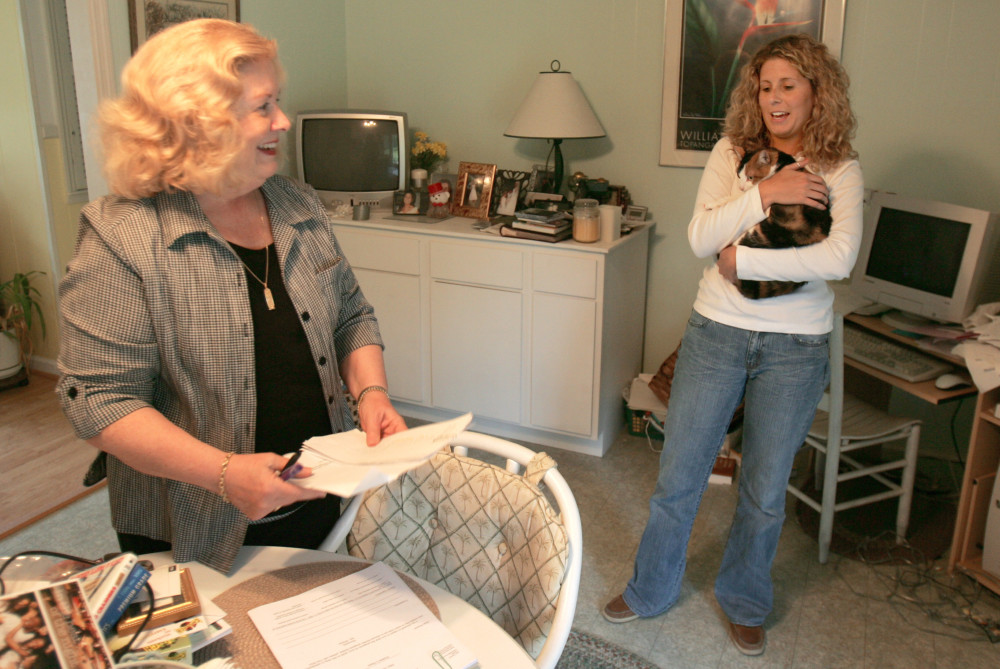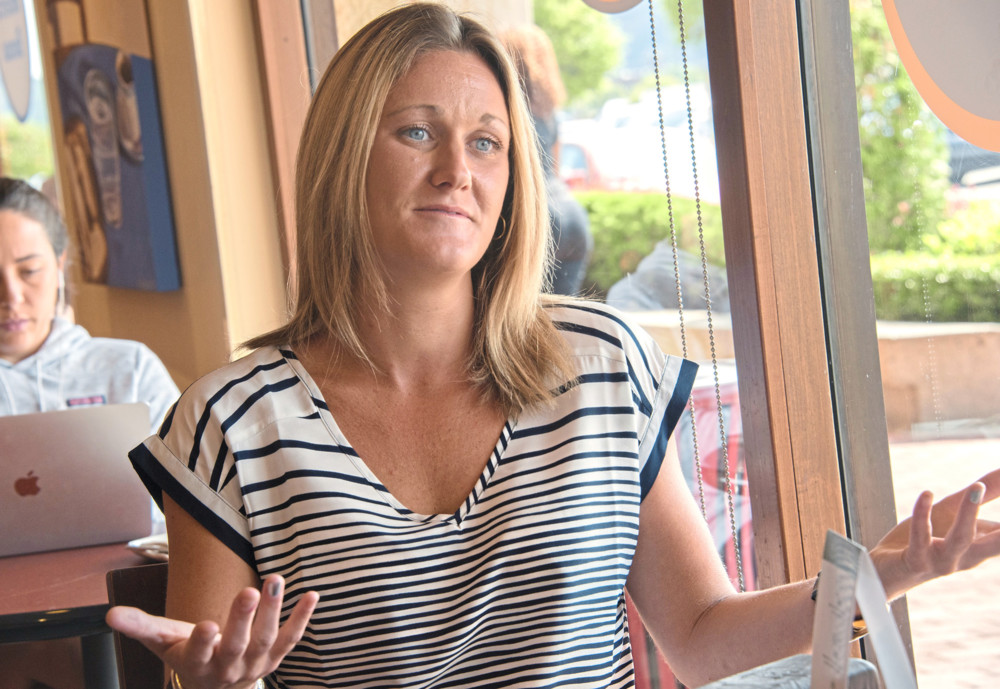By Jeff Collins
The Orange County Register.
Burdened by $85,000 in college debt, attorney Bobby Waltman lives with his mom and grandmother in a three-bedroom house in Huntington Beach, Calif.
Past frugality led the 29-year-old to live in a van parked at the beach, a one-room casita behind a Santa Ana, Calif., house and a tent in Alaska.
Now, he’s counting the days until his finances are sound enough to afford a home of his own.
“I’ve had this plan to move out for a while, and it just keeps getting postponed,” said Waltman, who works for a Newport Beach, Calif., personal injury firm.
“I’m working at a really good firm and I’m still living at home, and I figure it’s time I move on. (But) it’s hard to take on a mortgage with law school debt.”
Waltman may be symptomatic of a problem that’s still plaguing the housing market, and, to some extent, the economy as a whole.
The recession forced millions to move in with parents and relatives, or delay leaving, and to double up with roommates.
Not only did those people put off buying or renting homes of their own, but the impact has rippled through the economy in the form of reduced demand for furnishings, appliances and home and garden supplies.
Although job growth has returned and the housing market has turned a corner, some economists worry that not enough young people are leaving the nest.
Whether it’s because of student loans, credit card debt, a foreclosure hangover or a need to save for a mortgage, “household formation” has yet to get anywhere near pre-recession levels.
At a time when investors are buying fewer homes, the slow pace of household formation means fewer first-time buyers taking up that slack, which could limit the housing market going forward.
“Low household formation during the recession meant weaker demand for housing, which held back construction,” said Jed Kolko, Trulia’s chief economist.
Figures from the U.S. Census Bureau highlight the problem.
While the nation averaged nearly 1.2 million new households a year in the past five decades, that number fell to about 650,000 annually in the past five years, census figures show. Last year, 160,000 new households were created.
“During this past recession, household formation really got affected negatively because some of these kids lost their jobs and moved back with their parents, or they coupled up,” said Chapman University economist Esmael Adibi.
But Adibi noted that some people, like his neighbor’s 26- and 29-year-old children, still are living with their parents long after getting rehired.
“You need more than job creation,” he said. “You need job security.”
Economists note that demographics and migration also affect household formation rates.
Tim and Jenny Haagen spent 2 1/2 years living in Jenny’s old bedroom at her parents’ home in Anaheim Hills, Calif., after they both lost their jobs in May 2010.
“The option was either to stay in an apartment and bleed dollars out of savings or move in with her parents and save money not only for our wedding but for a house,” said Tim, 34, a land planner. “Our only space was that 12-by-11-foot bedroom. It was our sanctuary.”
Jenny, 32, an elementary school teacher, soon found work as director of student resources at Brandon University, but at a pay cut. Tim found a new job within six months.
Still, they continued to live with Jenny’s parents for two more years.
“It was actually not bad. They gave us our own space,” Jenny said. “They were very open to having us there. They wanted us to save money.”
The arrangement made it possible for the pair to get married in Maui in June 2011. In January 2013, they closed escrow on a three-bedroom, two-level condo in Tustin, Calif. They expect to have their first baby in August.
“We were able to save money,” said Tim. “We got married in Hawaii, and we were only able to do that because we were living at home.”
A National Association of Home Builders study released last month found that the share of 25- to 34-year-olds living with their parents increased to 19 percent in 2012, from around 12 percent in 1990 through 2005.
Those “older young adults” usually account for about half of first-time home buyers, the NAHB said. “Their delayed willingness and ability to leave parental homes and strike out on their own contributed to suppressing housing demand further during the Great Recession.”
Kolko determined that there are 2.4 million “missing” households in a study that took population by age into account. Most of those, he wrote, “are young people who aren’t heading up their own households. Instead, they’re living with their parents.”
When household formation picks up, Kolko told the Orange County Register, many of these new households will be young adults moving out of their parents’ homes or roommate situations.
In a curious side note, another facet of the economic recovery, a rising divorce rate, provides a counterweight to the drag of stay-at-home youth.
Couples had put off splitting because they couldn’t afford to when jobs were scarce and home equity and stock values were depressed.
After dropping steadily from 2006 through 2009, U.S. divorces changed course and started to climb in 2010, according to the National Center for Health Statistics. With each divorce, a new household is created.
Members of Gen Y say the benefits of moving back home go beyond the monetary.
Orange County native Shauna Hunt said living with her grandparents also gave her time to reconnect with family after being away at college.
The English and psychology double major wanted to save money while planning her next step in life after graduating from the University of Colorado.
She moved into Bob and Nancy Hunt’s two-story San Clemente, Calif., home 1 { years ago, worked as a nanny and eventually decided to pursue a master’s degree in psychology next fall.
“I love it,” Hunt, 23, said of the arrangement. “I love my family. Being away from them for four years made me appreciate them more. My grandparents are wise people, and I love to use that, to take advantage of that wisdom.”
Waltman, the attorney, said many of his friends still live with their parents, too.
“When many of your friends are living at home, it’s hard to rationalize moving out,” he said. “I love to travel. I love eating good food. I love to go to concerts and to go out. It’s just easier to do the things I love when I’m not spending money on rent.”
Besides, he added, “Mom’s cooking is still the best.”


















































































































































































































































































































































































Accident Attorney
April 5, 2014 at 2:07 am
Normally I do not learn article on blogs, however I would like to say that this write-up
very forced me to take a look at and do so! Your writing style
has been amazed me. Thanks, quite nice post.
Online Music Marketing
May 28, 2014 at 2:30 am
Good day I am so thrilled I found your webpage, I really found you
by error, while I was researching on Google for something else, Regardless I am
here now and would just like to say thank you for a
incredible post and a all round exciting blog
(I also love the theme/design), I don’t have time to browse
it all at the minute but I have book-marked it
and also included your RSS feeds, so when I have time I will be back to read a great deal
more, Please do keep up the excellent b.
healthy meal plan for fat burn
June 24, 2014 at 7:40 pm
I really like reading through a post that can make people think.
Also, thank you for allowing me to comment!